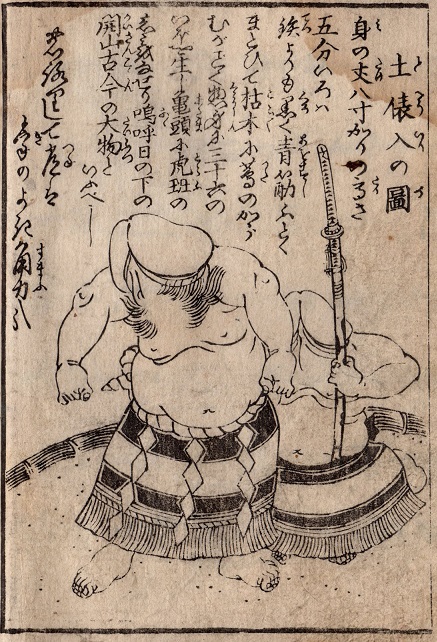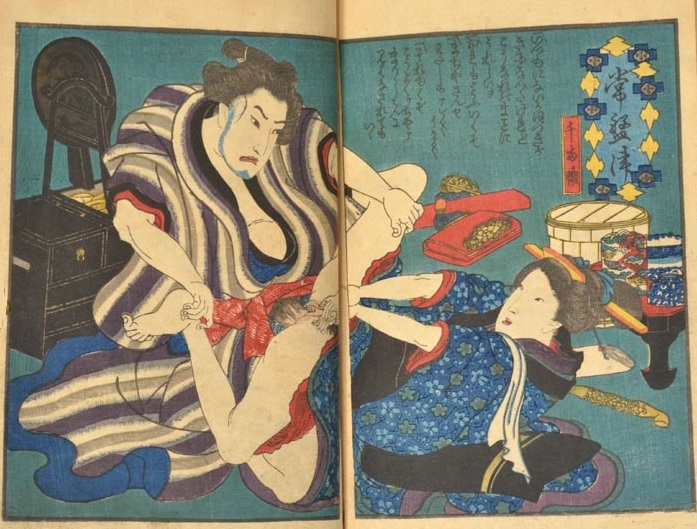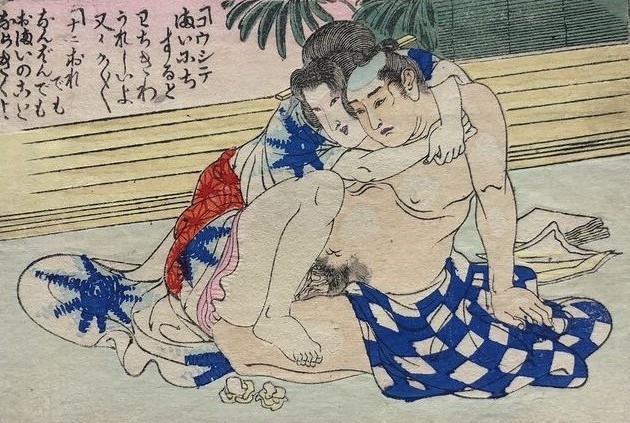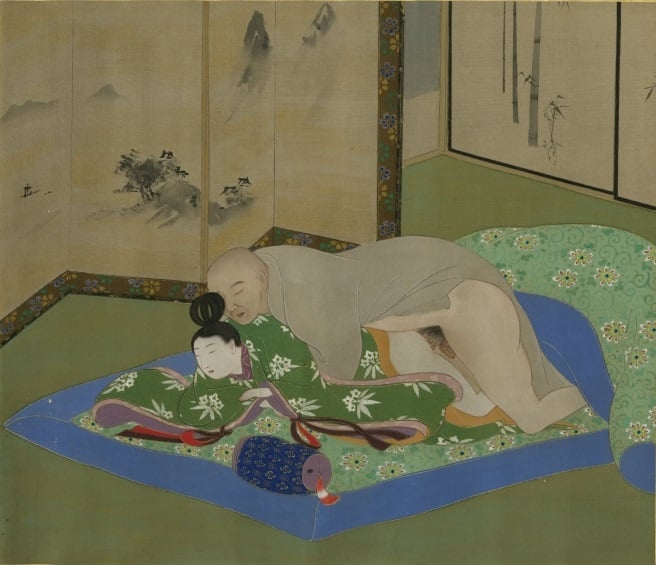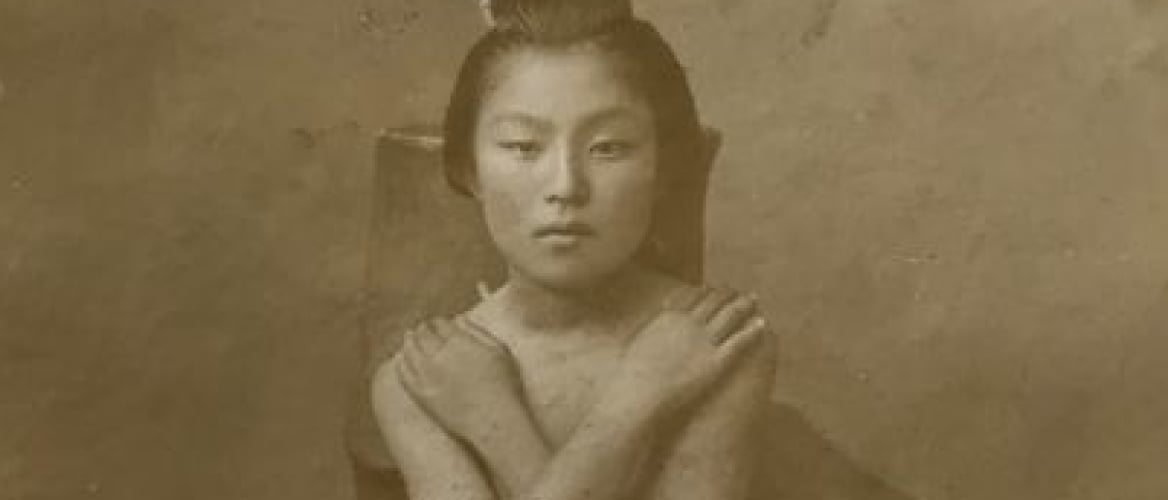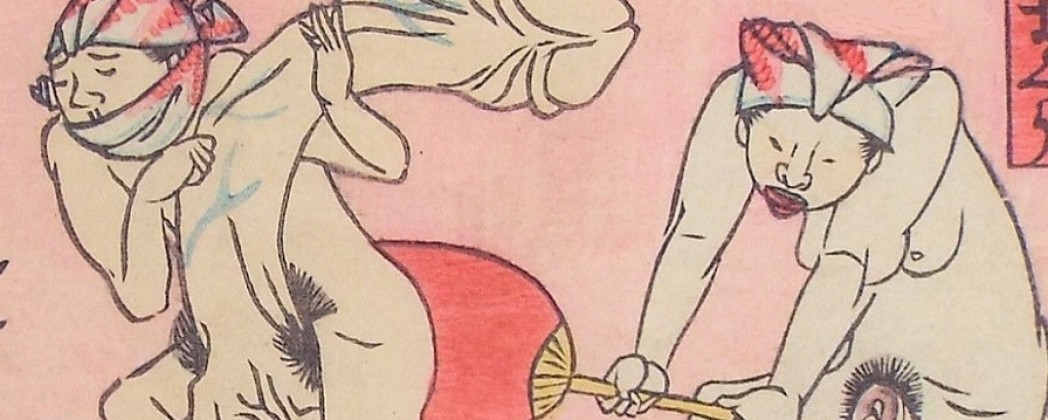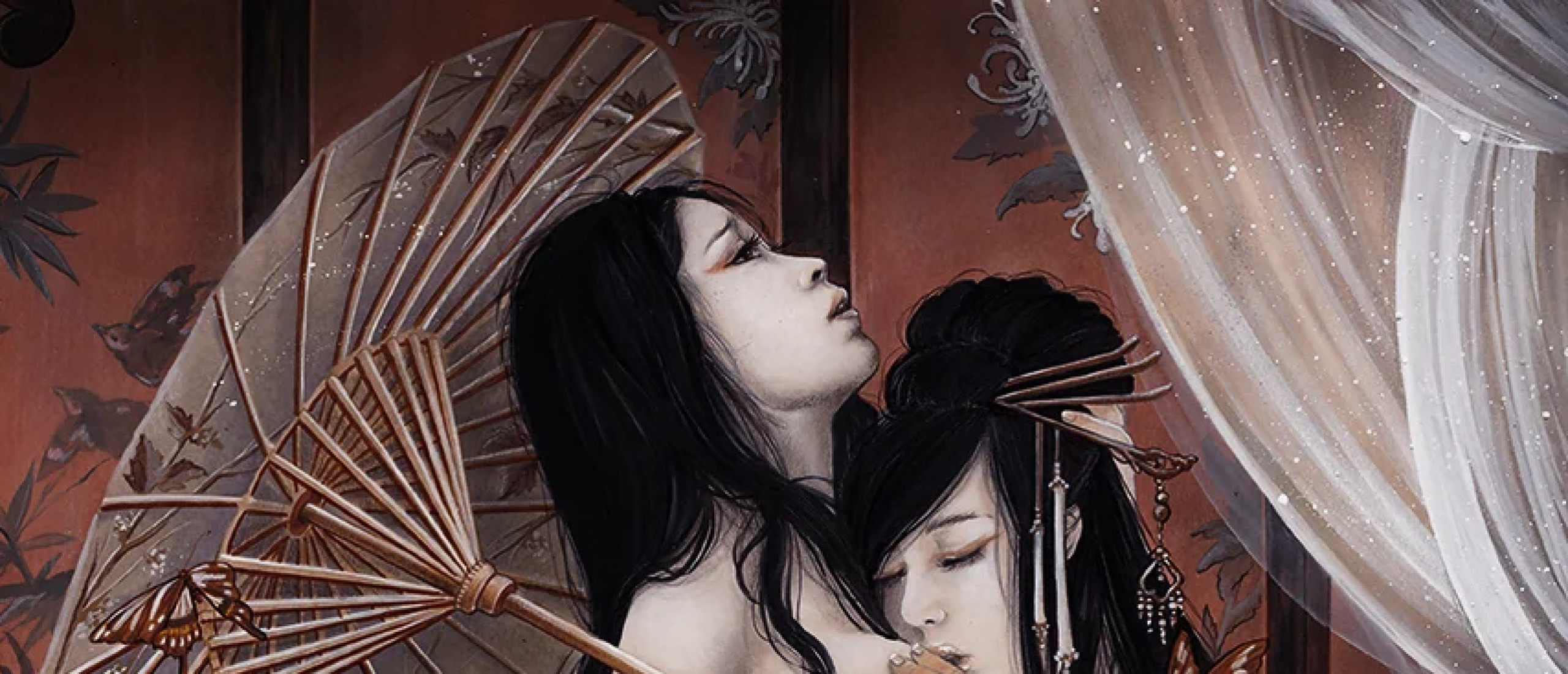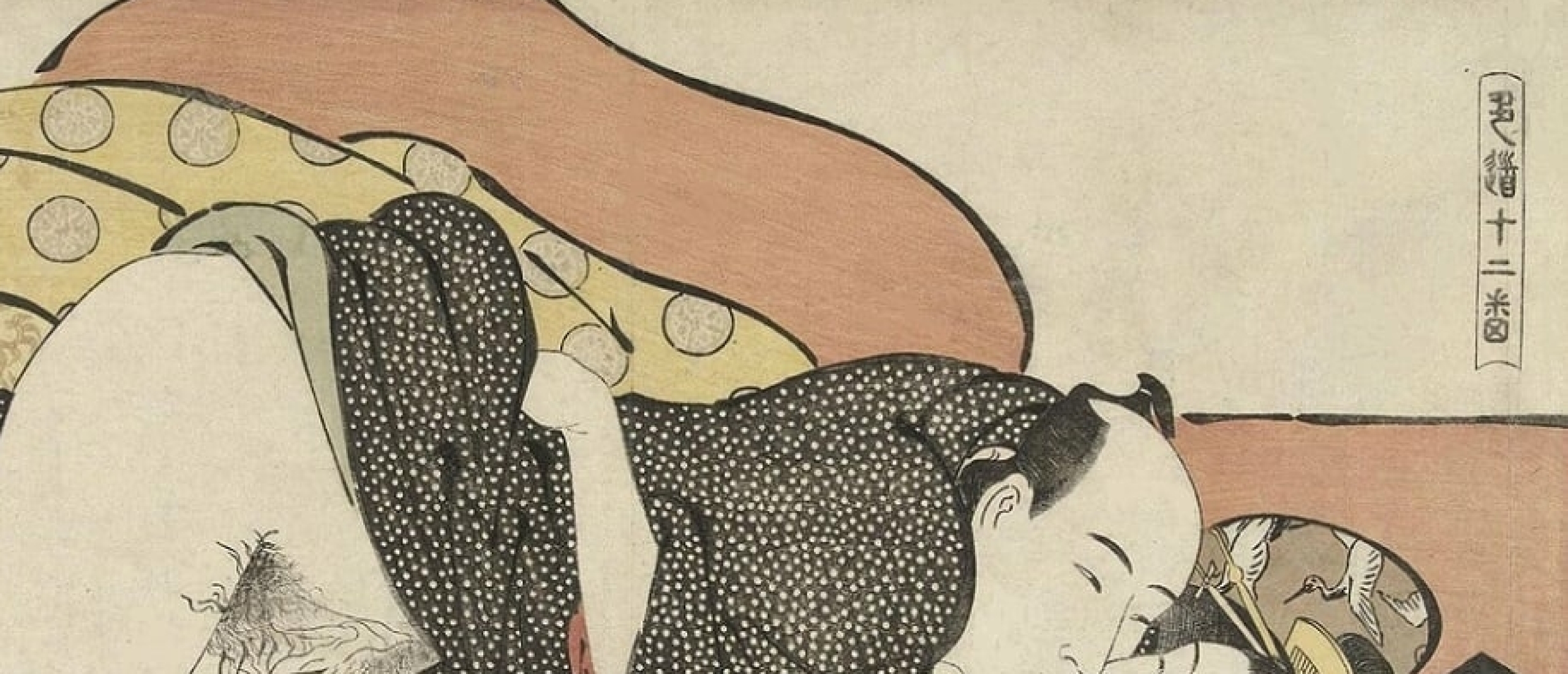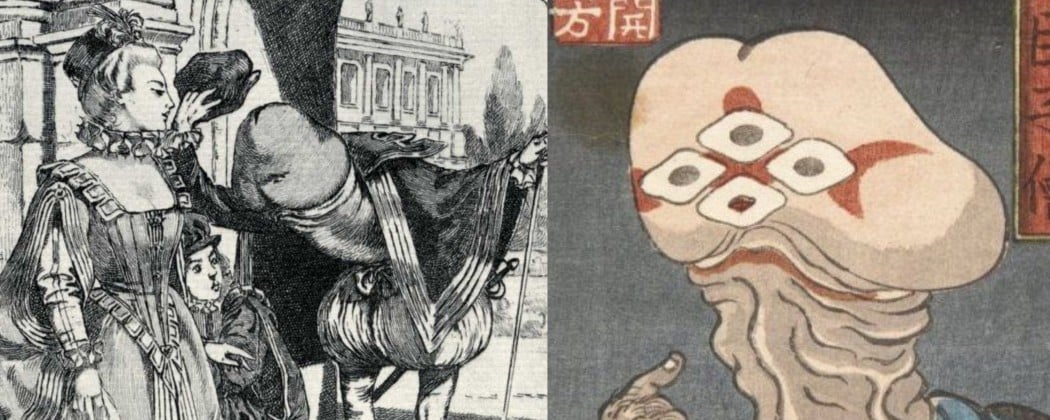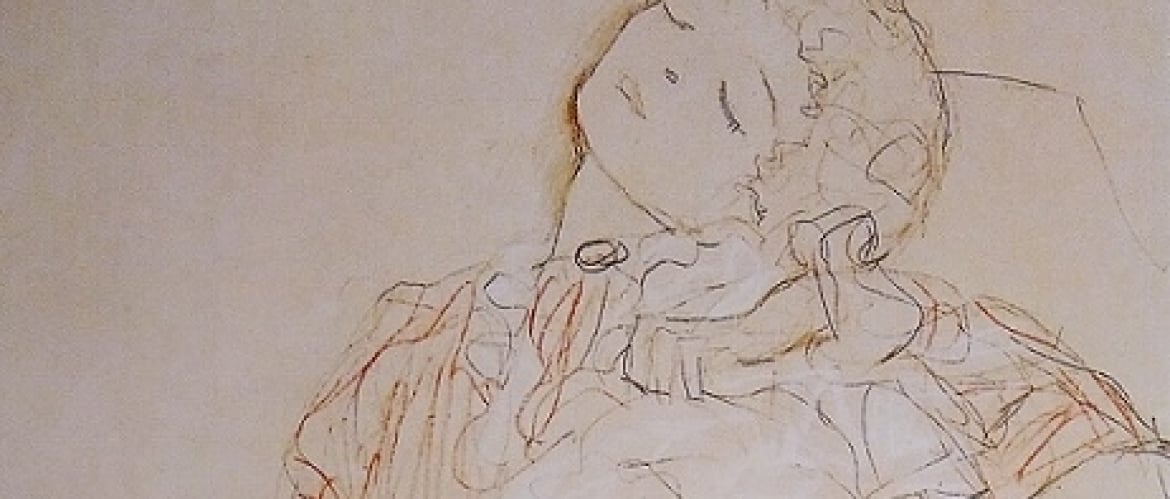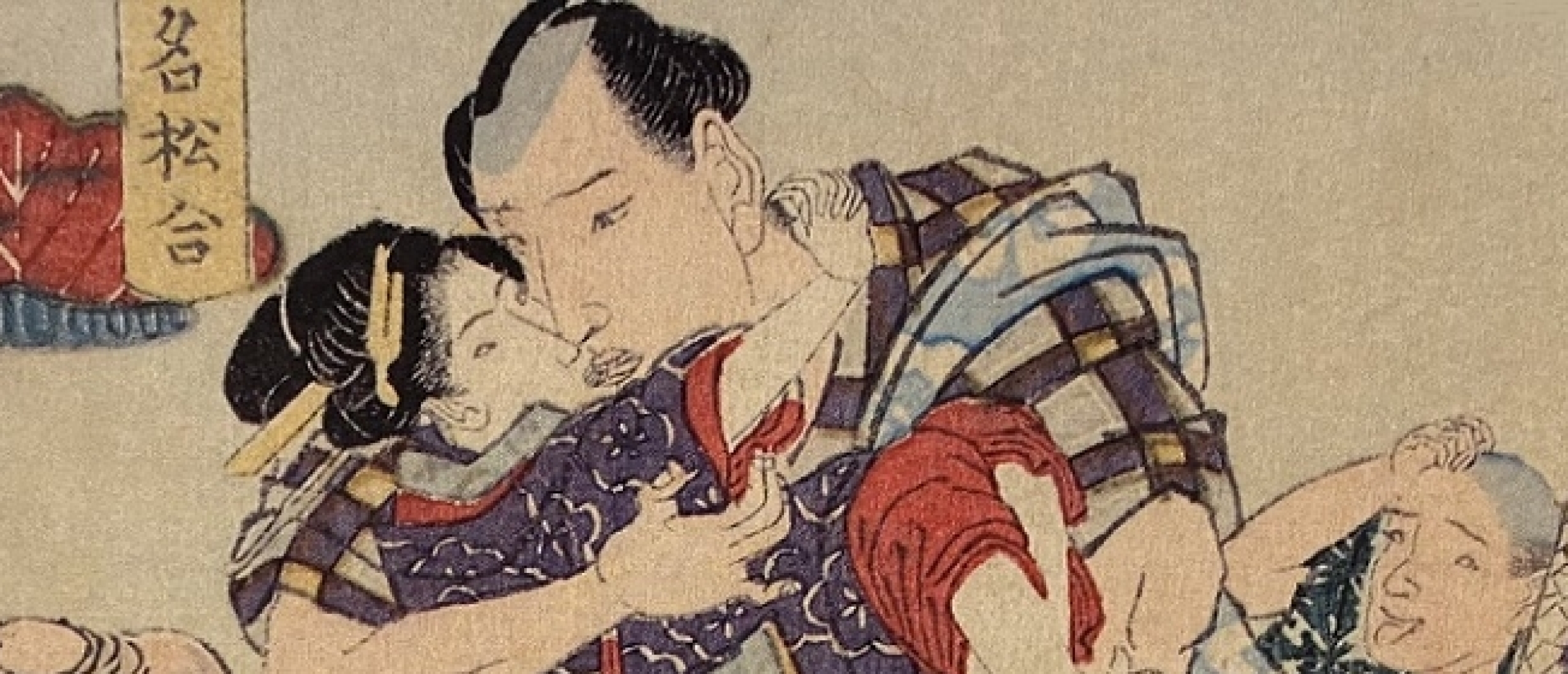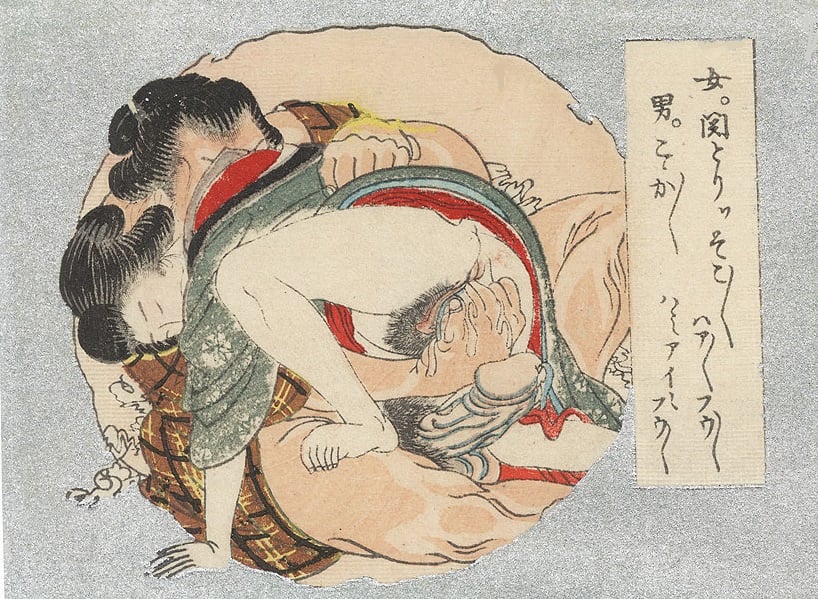
Shunga was an art form intended for a wide audience and therefore dealt with themes that would appeal to many, and for this reason sumo certainly could not be missed. The origins of sumo wrestling dates back to somewhere between the third and seventh centuries and has been an important part of Japanese culture ever since.
Raise Money
Sumo as we know it in its present form, with professional sumo wrestlers, originated in the Edo period. Competitions were organized to raise money to build or reconstruct public buildings such as temples and bridges. From this time on, sumo was not only a sport enjoyed by the rich and powerful but became part of the masses.
Banning Sumo
Sumo’s popularity grew even further with the introduction of the woodblock print, that often included scenes of sumo events or with portraits of famous sumo wrestlers. Like shunga, the authorities at the time condemned fighting and often issued orders banning sumo.
Giant Organs
In shunga, sumo wrestlers appear still wearing their Mawashi (loincloth, Fig.2.), casual wear (Fig.1.), or as giant organs (Fig.3.). Sumo wrestling was also often used as a parody on the battle of sexes (Fig.6).
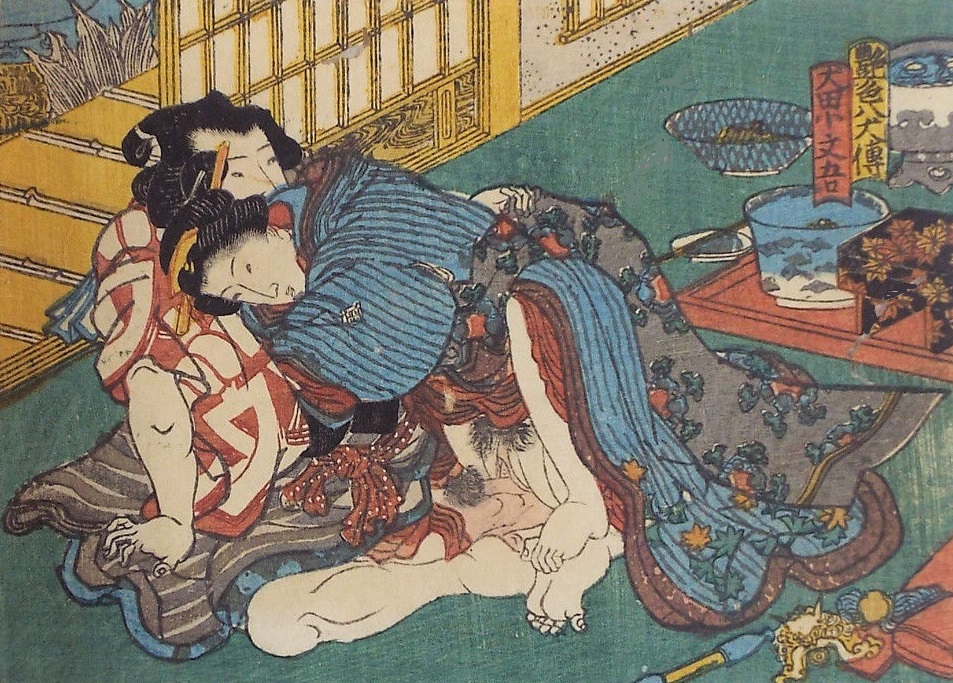
Fig.1. ‘Sumo wrestler with geisha’ (c.1850) by a pupil of the Utagawa school

Fig.2. Koban-sized shunga with ‘a Sumo in kesho-mawashi fingering a geisha‘ (c.1840) by Utagawa school
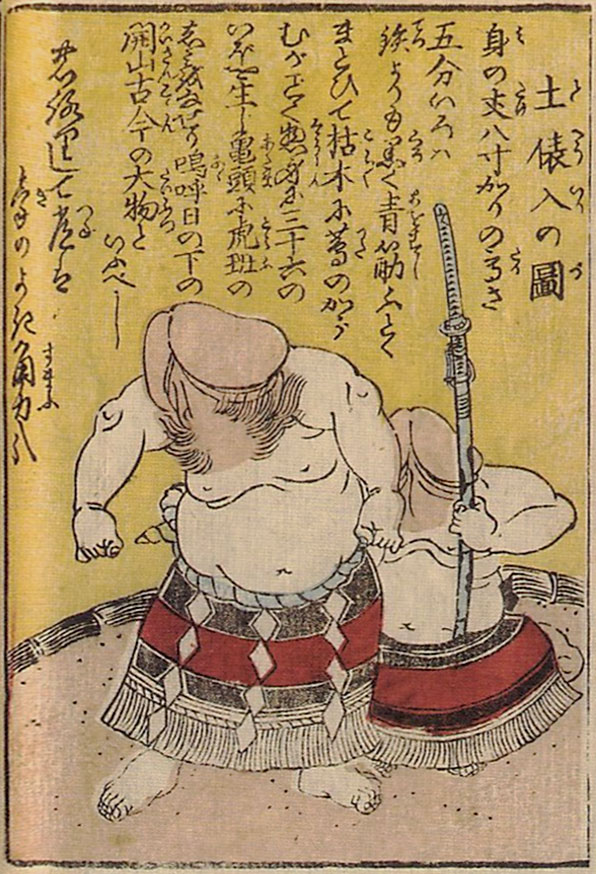
Fig.3. ‘Sumo wrestlers with phallus heads‘ (c.1850s) from the series ‘Iro no minakami sumo-e awase‘ by Utagawa Kunimaru
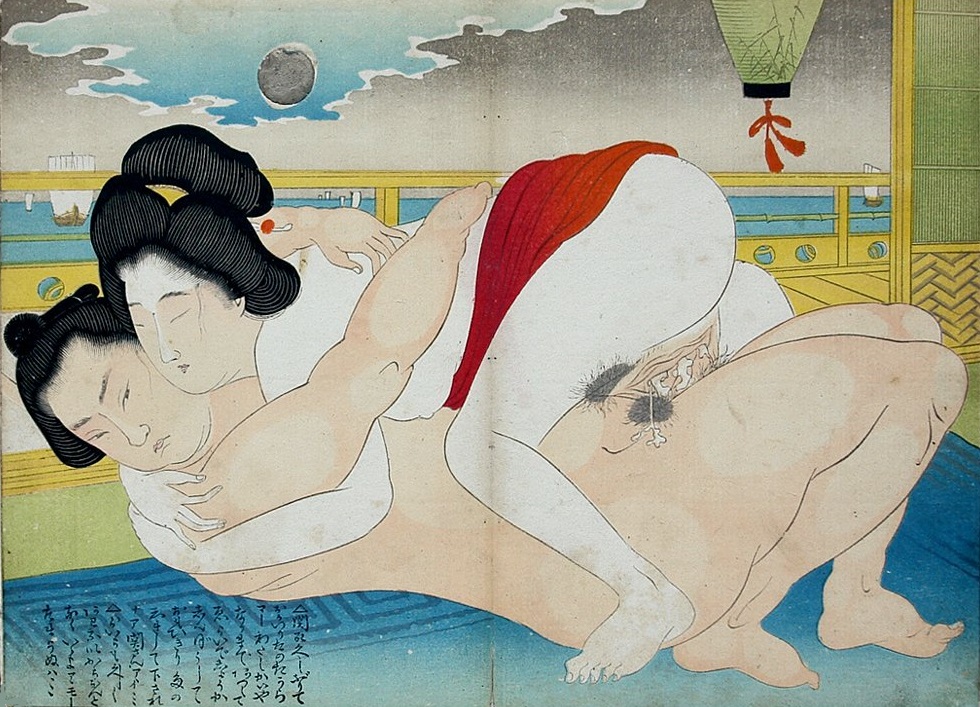
Fig.6. ‘Sumo wrestler making love to his lover under the sunset with in the backgound sailing vessels‘ (c.1899) by Terazaki Kogyo (1866-1919)
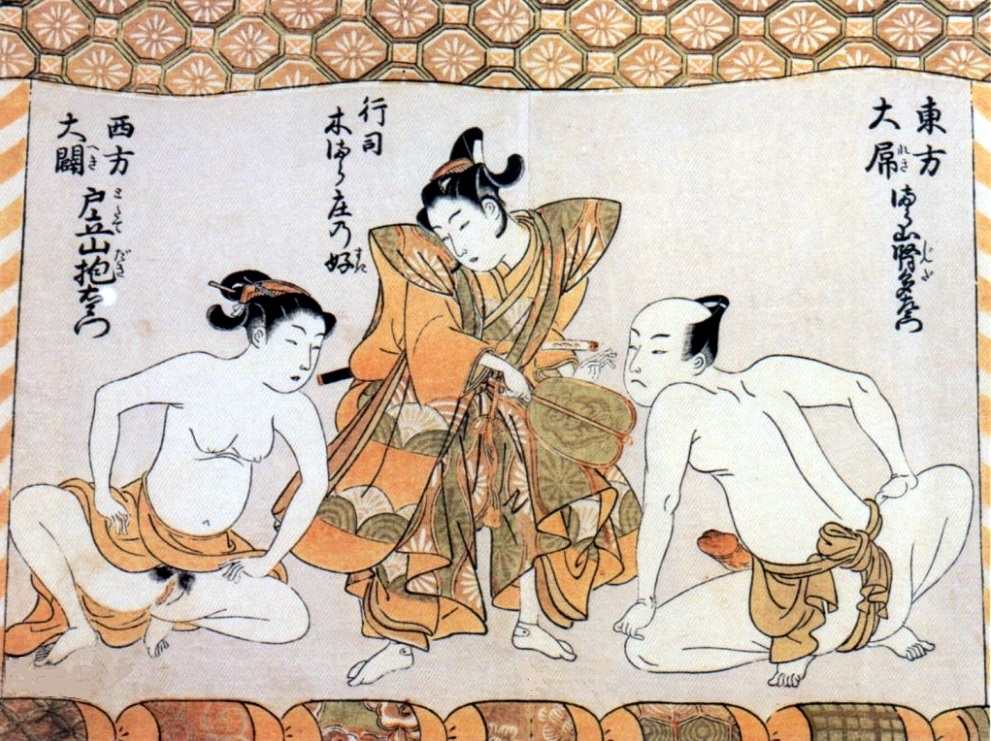
Fig.7. ‘Sumo poses man and woman‘ (c.1770) from an untitled series by Isoda Koryusai (1735-1790)
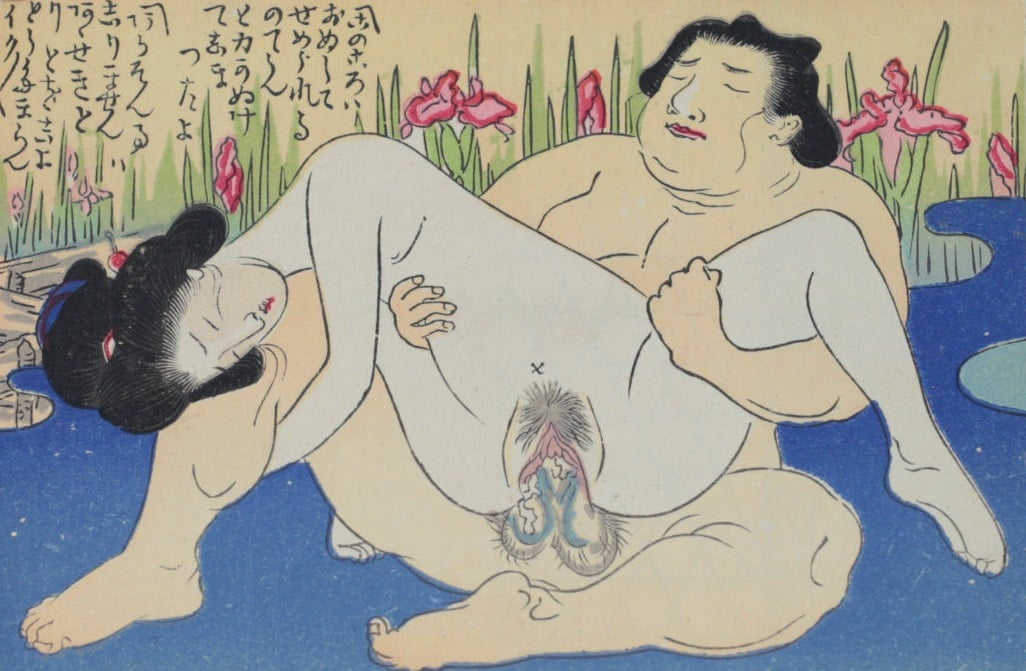
Fig.9. ‘Completely nude sumo wrestler and girl making love near a field of orchids‘ (c.1900) attrib. to Tomioka Eisen
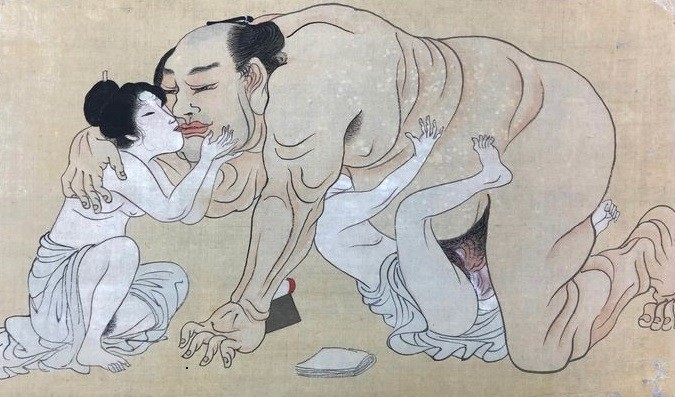
Fig.11. Painting of ‘A giant sumo making love to two females‘ (Late 19th century) by unknown artist
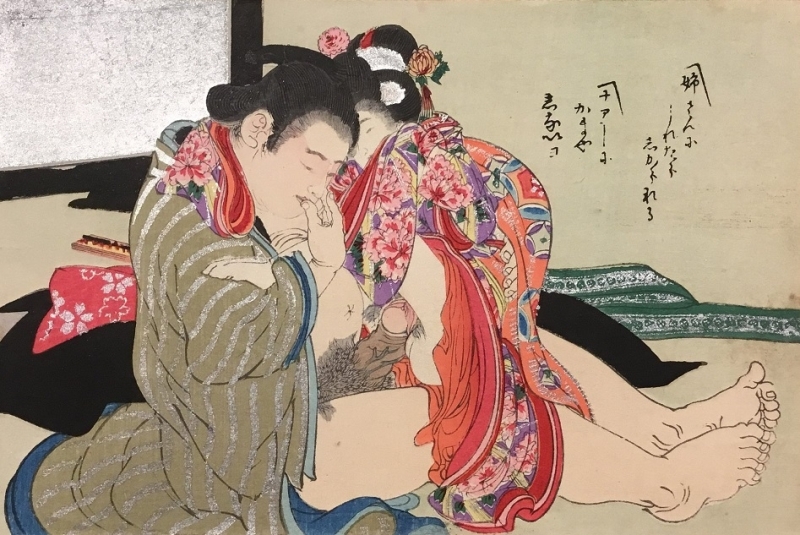
Fig.12. 'Young sumo wrestler wetting his fingers ' (c.1900) by an unknown Meiji artist
Click HERE and discover more exciting subjects and themes within the shunga genre…!!!
What are your favorite subjects within shunga? Leave your feedback in the comment box below!
Source: Web-Japan.org

